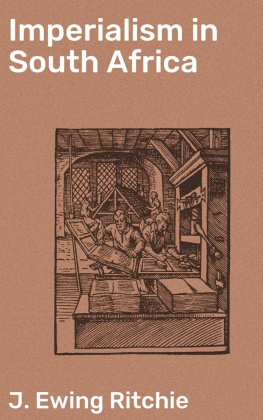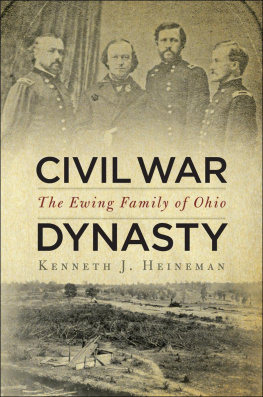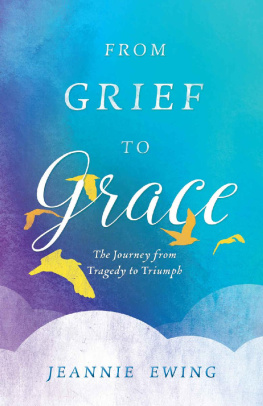IMPERIALISM IN SOUTH AFRICA.
ANNEXATION OF THE TRANSVAAL.
It is vain to dispute the fact that those Puritan Fatherswho, upon one occasion, held a meeting, and resolved first that the earth was the Lords, and the fulness thereof; secondly, that it was the heritage of the saints; and that thirdly, they were the saints, and were, therefore, justified in depriving the natives of their grounds, and in taking possession of them themselveshad a full share of that English faculty of appropriation which has made England the mistress of the seas, and for a while, almost, the ruler of the world; and, as Englishmen, we cannot say that on the whole that wholesale system, which has planted the British flag in every quarter of the globe, has been disastrous to the communities ruled over, or dishonourable to the nation itself. In some cases undoubtedly we have acted unjustly; in some cases the lives and happiness of millions have been placed in incompetent hands; in some cases we have had selfish rulers and incapable officers; but India and Canada and the West Indian Islands and Australia and New Zealand are the better for our rule. An Englishman may well be proud of what his countrymen have done, and it becomes us to review the past in no narrow, carping, and censorious spirit. We have spent money by millions, but then we are rich, and the expenditure has not been an unproductive one. We have sacrificed valuable lives, but the men who have fallen have been embalmed in the nations memory, and the story of their heroism will mould the character and fire the ambition and arouse the sympathies of our childrens children, as they did those of our fathers in days gone by; and yet there is a danger lest we undertake responsibilities beyond our means, and find ourselves engaged in contests utterly needless in the circumstances of the case, and certain to result in a vain effusion of blood and expenditure of money. As far as South Africa is concerned, this is emphatically the case. Originally the Cape Settlement was but a fort for the the coast. The country is subject to drought, and seems chiefly to be inhabited by diamond diggers, ostrich farmers, and wool growers. Its great agricultural resources are undeveloped, because labour is dear, and all carriage to the coast is expensive. The English never stop in the colonies, but return to England as soon as they have made a fortune. Living is quite as dear as in England, and in many parts dearer. In the Cape Colony, the chief amusements of all classes are riding, driving, shooting, and billiards. In the interior there are fine views to be seen, and in some quarters an abundance of game. The thunderstorms are frightful, the rivers, dry in summer, are torrents in winter. The droughts, the snakes, the red soil dust, and the Kaffirs, are a perpetual nuisance to all decent people. Although South Africa is a rising colony, writes Sir Arthur Cunynghame, I hardly think it offers to the emigrant the chances which he would obtain in Australia or New Zealand. South Africa is not a very rich country. Labour is hard to obtain, and it will be years before irrigation can be carried on a sufficient scale to make agriculture a brilliant Success. Nevertheless, land is so abundant that the energetic colonist is sure, at least, to make a living, and provided he does not drink, has a good chance of becoming a rich man. A great deal of money is made by ostrich farming and sheep grazing, but they are occupations which require capital. As to cereals, it pays better to buy them than to grow them. A cabbage appears to be a costly luxury, and the price of butter is almost prohibitive. South Africa, wrote a Saturday Reviewer recently, is the paradise of hunters, and the purgatory of colonists. The remark is not exactly true, but for all practical purposes it may be accepted as the truth. If this be so, how is it, then, it may be asked, we English have been so anxious to get possession of the country? The answer is, We hold the Cape of Good Hope to be desirable as a port of call and harbour of refuge on our way to India; but the opening of the Suez Canal has changed all that, and the reason for which we took it from the Dutch in 1806 does not exist now. Whether the country has ever made a penny by the Cape remains to be proved.
In taking possession of the Cape of Good Hope, we found there a people whom we have annexed against their will, and of whom we have made bitter enemies. These were the original Dutch settlers, or Boers, a primitive, pastoral people, with a good deal of the piety of the Pilgrim Fathers, and who set to work to exterminate the pagans much after the fashion of the Jews, of whom we read in the Old Testament. Their plan of getting rid of the native difficulty was a very effective one. They either made the native a slave, or they drove him away. Mr. Thomas Pringle, one of our earliest colonists, says, Their demeanour towards us, whom they might be supposed naturally to regard with exceeding jealousy, if not dislike, was more friendly and obliging than could, under all the circumstances, have been expected. They were, he says, uncultivated, but not disagreeable, neighbours, exceedingly shrewd at bargain making; but they were civil and good-natured, and, according to the custom of the country, extremely hospitable; and the same testimony has been borne to them by later travellers. They lived as farmers, and the life agreed with them. The men are finely made, and out of them a grand empire might be raised. In 1815 they made an effort to shake off the British yoke. A Hottentot, named Booy, appeared at the magistrates office at Cradock, and complained of the oppressive conduct of a Boer of the name of Frederick Bezuidenhout. Inquiry was accordingly made. The Boer admitted the facts, but, instead of yielding to the magistrates order, he boldly declared that he considered this interference between himself and his Hottentot to be a presumptuous innovation upon his rights, and an intolerable usurpation of authority. He told the field-cornet that he set at defiance both himself and the magistrate who had sent him on this officious errand, and, to give further emphasis to his words, he fell violently upon poor Boor, gave him a severe beating, and then bade him go and tell the civil authorities that he would treat them in the same manner if they should dare to come upon his grounds to claim the property of a Hottentot. It must be remembered that when the Boers were handed over to us, without their leave or without their consent being in any way asked, each Boer had perfect control over the liberty and life and limb of every Hottentot under his control. It was only thus he believed his property was safe, and his throat uncut. But to return to Bezuidenhout. The Cape Government could not allow his defiance to pass unheeded. An expedition was sent out against him, and he was shot. The affair excited a great sensation in the country. At a numerous assemblage of the Boers in the neighbourhood, it was resolved to revenge his death. They did more; they resolved to be independent of the hateful British yoke; but, it is needless to add, in vain. England, after putting down Napoleon, and triumphing at Waterloo, was in no mood to be defied by a handful of Dutch farmers in a distant quarter of the globe. But the Cape Government had Kaffir wars to fight, and they could not afford to treat the Boers as absolute enemies, and they were rewarded with a large portion of the territory, won from the Kaffirs in 1819. But this was not sufficient for their earth-hunger. They crossed the boundaries, and, with their lives in their hands, planted themselves among the savages. In 1838 they went off still further from British rule. In that year the slaves were manumitted, and a sum of money was voted as a compensation to the Boers. To the shame of the British Government, it must be confessed that the equivalent was never paid them. Despairing of ever receiving it, they sold their rights to Jews and middlemen, and trekked far out into the country into the districts known as Griqualand, Natal, the Orange Free State, and the Transvaal. It is because we have followed them there, when there was no need to have done so, that we are now engaged in a costly and bloody war. First we seized Natal; then we took possession of the Diamond Fields, and our last act was the annexation of the Transvaal. How far this system of annexation is to spread, it is impossible to say. It is equally impossible to state what will be its cost in treasure and in men. It seems equally difficult to say upon whom the blame of this annexation system rests. It really seems as if we were villains, as Shakespeare says, by necessity and fools by a divine thrusting on. We should have left the Boers alone. They were not British subjects, and did not want to be such. Natal was not British territory when they settled there, neither was the Orange Free State Territory; and, at any rate, in 1854 their independence, which had been persistently fought for, and nobly won, was acknowledged by the British Government as regards the Orange Free State and the Transvaal. Surely in South Africa there was room for the Englishman and the Boer, and if it had not been for the dream of Imperialism, which seems to dominate the brain of our colonial rulers, the two nations might have lived and flourished side by side. The Boer, at any rate, has made himself at home on the soil. It agrees with him physically. In the Orange State and the Transvaal he made good roads, and built churches and schools and gaols, and turned the wilderness into a fruitful field. In reply to the English who pleaded for annexation, he said, We fled from you years ago; leave us in peace. We shall pay our debts early enough; your presence can but tend to increase them, and to drive us through fresh wanderings, through new years of bloodshed and misery, to seek homes whither you will no longer follow us. We conquered and peopled Natal; you reaped the fruits of that conquest. What have you done for that colony? Do you seek to do with our Transvaal as you have done with it, to make our land a place of abomination, defiled with female slavery, reeking with paganism, and likely, as Natal is, only too soon to be red with blood?





